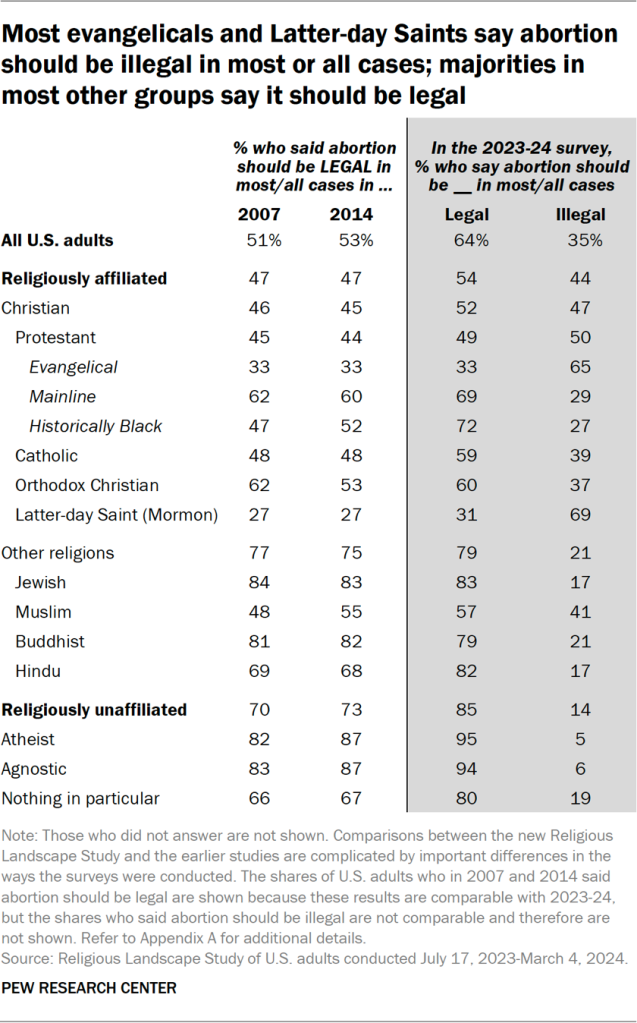In the 2023-24 Religious Landscape Study (RLS), 59% of adults who identify with a religion say that homosexuality should be accepted by society, up a bit from 55% in 2014 and from 46% in 2007. 68
This view is more widespread among Americans who are religiously unaffiliated (that is, those who identify as atheist, agnostic or “nothing in particular” when asked about their religion) than among those who identify with a religion. In the 2023-24 survey, 87% of religiously unaffiliated respondents say homosexuality should be accepted by society, compared with 83% in 2014 and 71% in 2007.
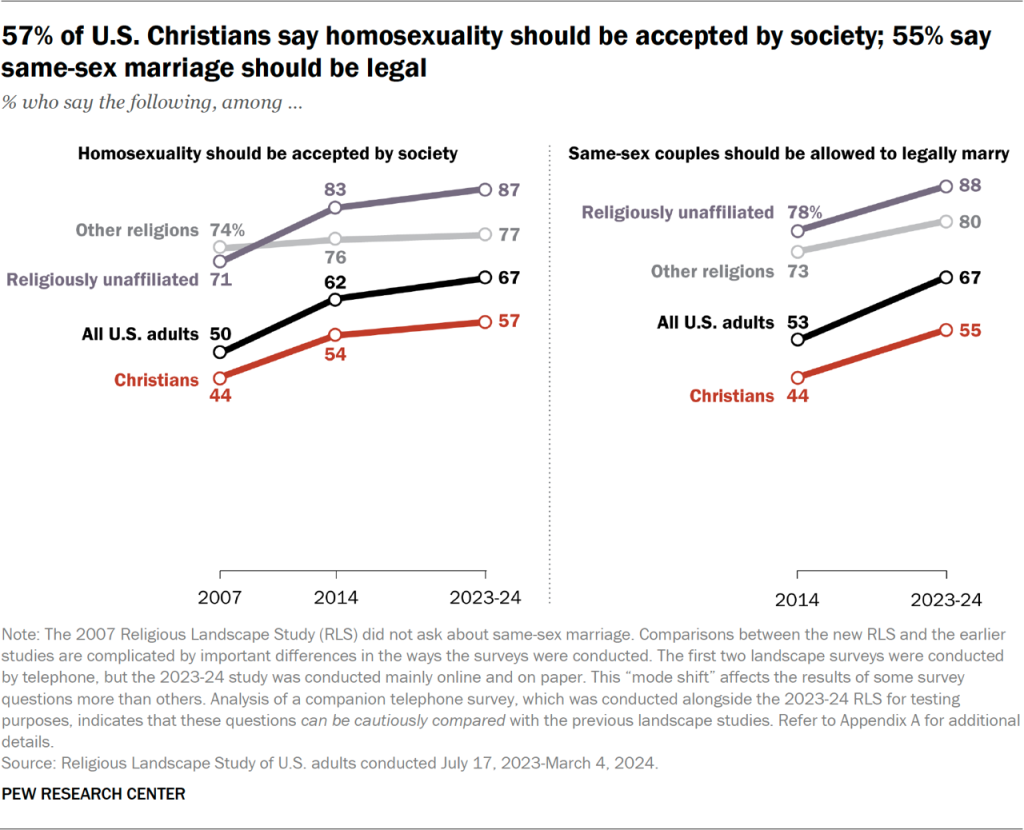
In the new RLS, 55% of Christians say they favor allowing same-sex couples to marry legally, up from 44% in 2014. Support for legal same-sex marriage is generally higher among Hindus (88%), Buddhists (87%), Jews (82%) and religiously unaffiliated Americans (88%) than it is among Christians.
When it comes to acceptance of people who are transgender (that is, those who identify as a gender that is different from the sex they were assigned at birth), Americans who identify with a religion are more likely to say that greater social acceptance of transgender people has been a “change for the worse” (45%) than a “change for the better” (32%). By contrast, religiously unaffiliated Americans are much more likely to describe this as a change for the better (58%) than as a change for the worse (22%).
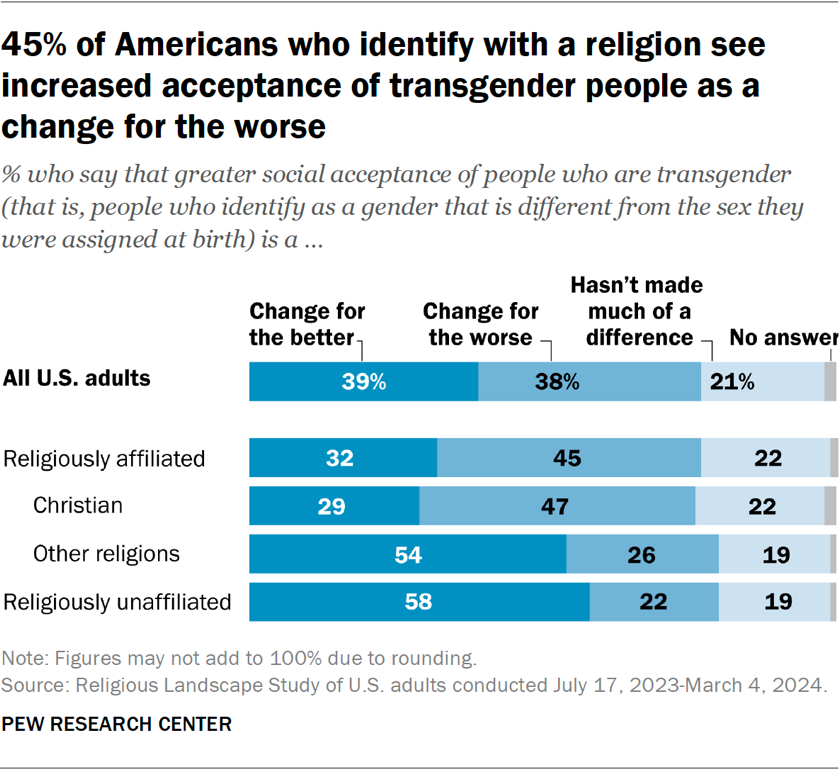
(Pew Research Center did not ask about acceptance of transgender people in either the 2014 or 2007 RLS.)
All three Religious Landscape Studies have asked about abortion. And all three studies have found that support for legal abortion is much higher among religiously unaffiliated Americans than among U.S. Christians. (More information about long-term trends in the public’s abortion views is available in the Center’s fact sheet “Public Opinion on Abortion.”)
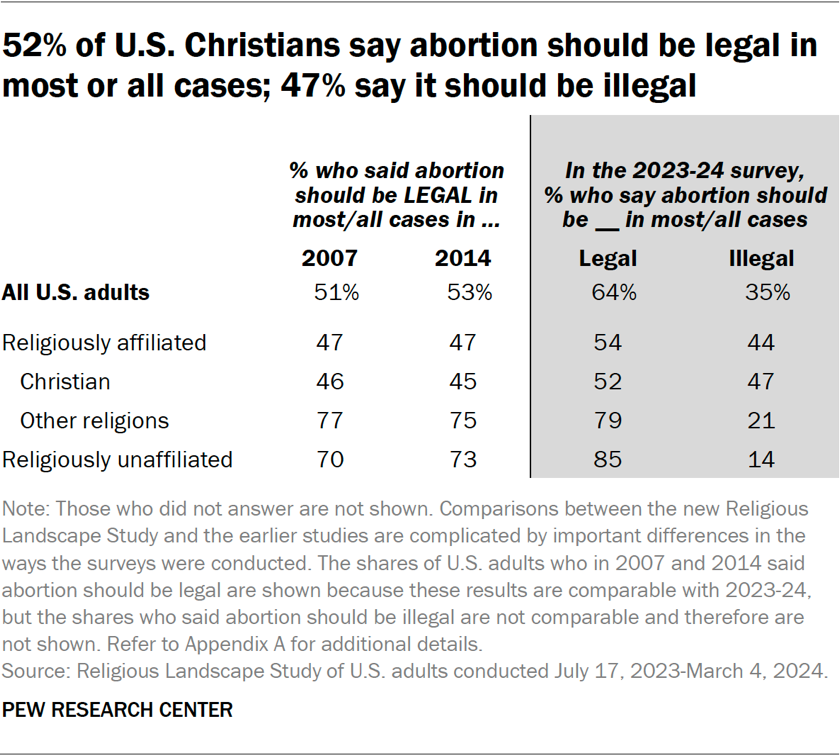
The rest of this chapter describes how people from different religious groups answer the survey’s questions about LGBTQ issues and abortion.
(In addition to religion, views on these topics also are linked with political partisanship, age and other factors. More details about how public opinion varies on LGBTQ issues and abortion are available on our website.)
Read more on how religious groups answer questions about:
Acceptance of homosexuality
In all three Religious Landscape Studies, large majorities of religiously unaffiliated Americans have said homosexuality should be accepted by society. Most Jews and Buddhists also have consistently expressed this view, as have seven-in-ten or more Hindus in both 2014 and in the new survey.
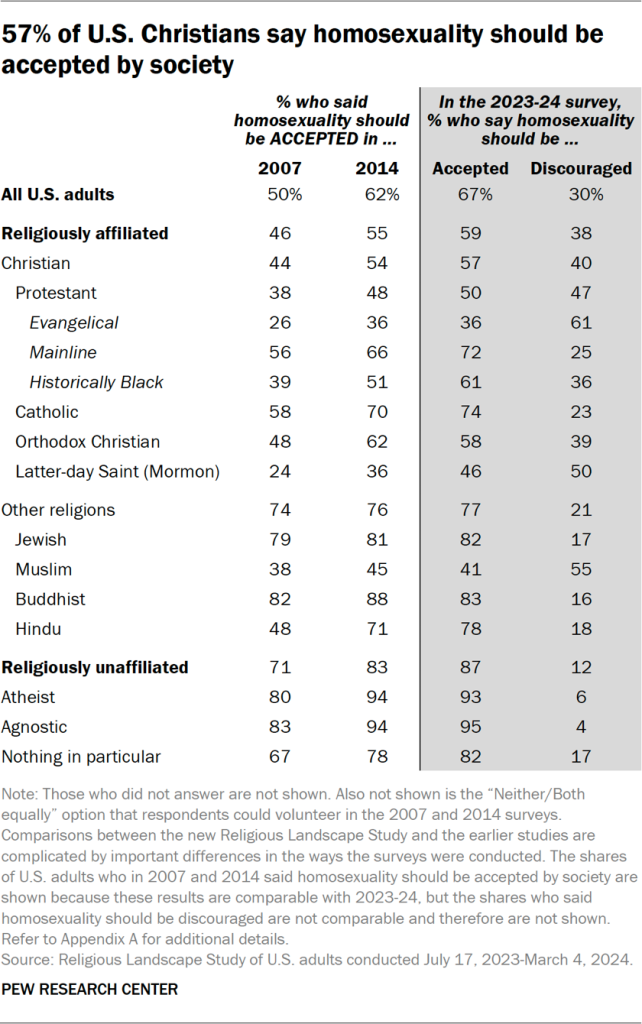
A smaller majority of Christians say homosexuality should be accepted by society. Most Catholics, mainline Protestants and members of historically Black Protestant churches say homosexuality should be accepted, while most evangelical Protestants say homosexuality should be discouraged by society. Members of the Church of Jesus Christ of Latter-day Saints (widely known as Mormons) are divided on this question.
Still, Christians overall are more accepting of homosexuality today than they were when the first RLS was conducted in 2007. Some Christian groups exhibited increased acceptance between 2007 and 2014 and then a leveling off, while others continued to exhibit increased acceptance between the 2014 survey and the new study.
Same-sex marriage
Since the last RLS, nearly every Christian group large enough to be analyzed has become more likely to favor allowing same-sex couples to marry legally. None of the U.S. religious groups analyzed here have shown a decline in support for same-sex marriage.
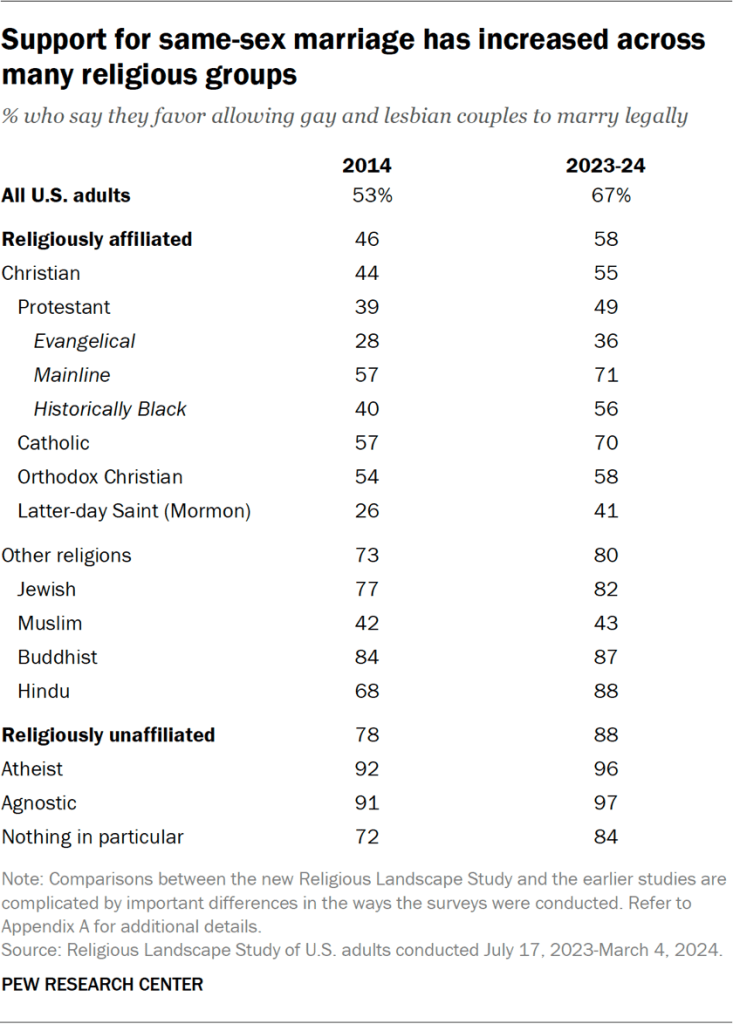
For example, 70% of Catholics favor same-sex marriage in the new survey, up from 57% in 2014. And 56% of adults in the historically Black Protestant tradition now favor it, up from 40% in 2014.
At the same time, the survey shows that most evangelical Protestants (62%) continue to oppose same-sex marriage, as do 56% of Latter-day Saints.
Acceptance of transgender people
Religiously unaffiliated Americans are a lot more likely than those who identify with a religion to say that increased acceptance of people who are transgender is a “change for the better” (58% vs. 32%).
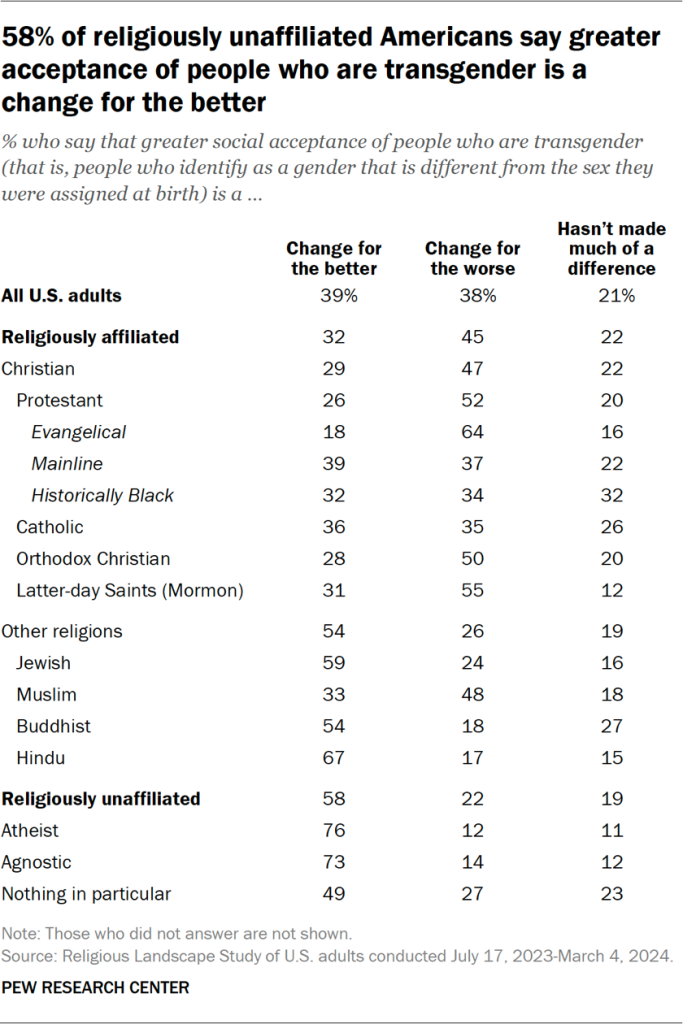
Majorities of Hindus (67%) and Jews (59%) in the U.S. also see transgender acceptance as a change for the better.
Taking the other position, 47% of U.S. Christians and 48% of Muslims say that increasing acceptance of transgender people is a “change for the worse.” Among Christians, this includes:
- 64% of evangelical Protestants
- 55% of Latter-day Saints
- 50% of Orthodox Christians
Catholics, mainline Protestants and members of historically Black Protestant churches are more divided on this question. For example, 39% of mainline Protestants say greater social acceptance of people who are transgender is a change for the better, while 37% say it is a change for the worse.
Abortion’s legality
In the new survey, roughly two-thirds of Latter-day Saints (69%) and evangelical Protestants (65%) say abortion should be illegal in most or all cases. Majorities in most other groups, by contrast, say abortion should be legal in most or all cases.
